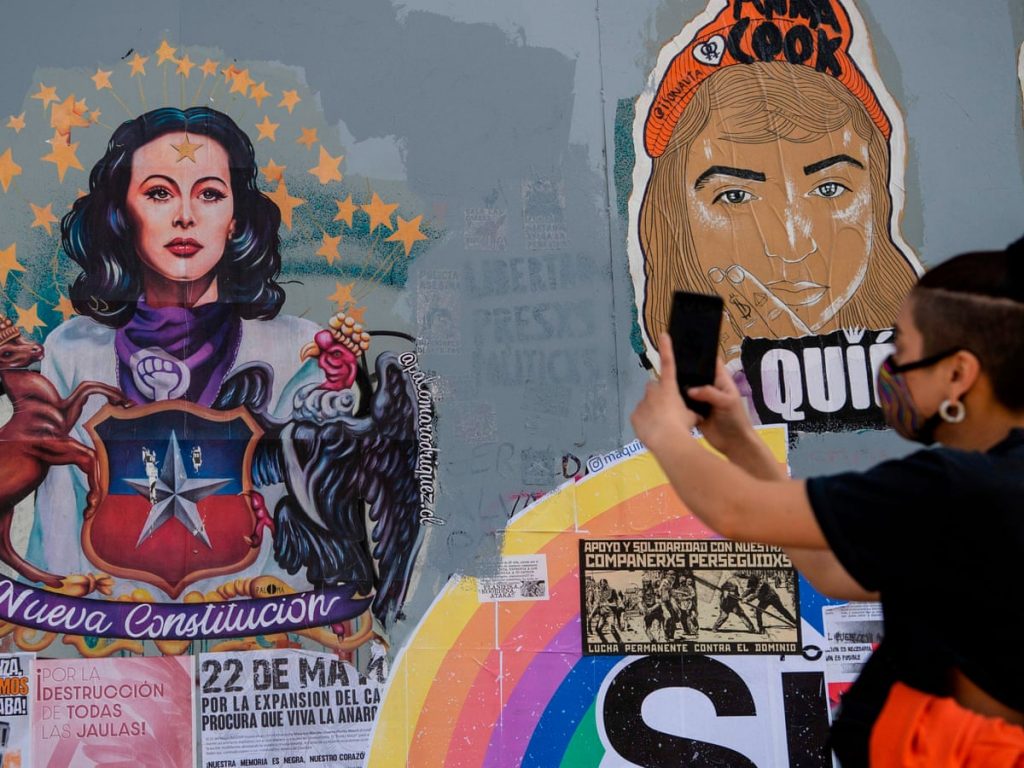
In October 2020, after years of civil unrest and numerous attempts, the Chilean public voted overwhelmingly to adopt a new constitution in place of the current one, a relic of Pinochet dictatorship. Neoliberalism features prominently in his constitution, which many attribute as the underlying causes of inequality that are perpetuated in Chile today. Opposition towards this constitution has also come as a result of the degradation of public services such as healthcare and the government pension. Protests have centered around efforts to make the rewrite a constitutional convention rather than a congressional proceeding, allowing the general populace to have more of a say in what goes into the new constitution. By expanding enfranchisement and political representation, many in the movement also seek to increase the political prestige of the nation with a solid commitment to civil rights. Much of this enthusiasm follows from recent government attempts to decrease pension funds and increase the cost of public transportation and basic utilities. Despite this sentiment, opposition to this movement, mostly by right wing parties, has split the political right in two and has weakened the governmental Pinera coalition. Many look back fondly on the Pinochet years for the economic overhaul that his administration was responsible for, bringing Chile to the forefront of the South American economic zone.
For many outside parties looking in on Chile, instability seems to be a near certainty in the coming years. The Chilean government has expected foreign investment to stop and general instability to rise as a result of the new constitution. The convention is expected to significantly modify the existing economic structure to benefit social services rather than the open-economy currently in use. Though these changes will in theory profoundly help to amend the current wealth-gap and to improve the living conditions of the Chilean lower classes, skepticism about the staying power of such changes still persists.
As seen in the street art depicted in this image taken by Martin Bendetti, there are several symbols that the plebiscite movement has chosen to adopt. On the righthand side of the image, the rainbow of the No campaign from 1988 has been re-adopted for the movement. The campaign was the original public movement against the Pinochet dictatorship and its original constitution, and resulted in the downfall of his regime. The inclusion of it here speaks to the heritage of the movement and the culmination of 4 decades of dedication and political protest. Another symbol featured in the image is a slight alteration of the Chilean national coat of arms. The image is the same apart from the text, which says “New Constitution” in Spanish, replacing the Chilean national motto of “Por la razón o fuerza (By reason or by force).” This clearly indicates a rejection of the old virtues of neoliberal nationalism as espoused by the motto. While nothing specific replaces this, it is clear that the Chilean people are in need of a new slogan that unites them under a different national identity. The numerous depictions of Chilean women and the black and white poster in the bottom right highlight the traditional disparagement of indigenous and gender minorities in the country. For them, the constitutional convention route represents a chance to be heard and to establish their place as citizens with equal rights and privileges for the future.
Works Cited
Seminario, Margarita R. “The 2020 Chilean Plebiscite: Overview, Citizen Engagement, and Potential Impact.” The 2020 Chilean Plebiscite: Overview, Citizen Engagement, and Potential Impact | Center for Strategic and International Studies. Center for Strategic & International Studies, January 4, 2021. https://www.csis.org/analysis/2020-chilean-plebiscite-overview-citizen-engagement-and-potential-impact.
Watson, Katy. “Jubilation as Chile Votes to Rewrite Constitution.” BBC News. BBC, October 26, 2020. https://www.bbc.com/news/world-latin-america-54687090.
Image Link: Image by Martin Bernetti:https://www.theguardian.com/world/2020/oct/22/chileans-pinochet-constitution-referendum
